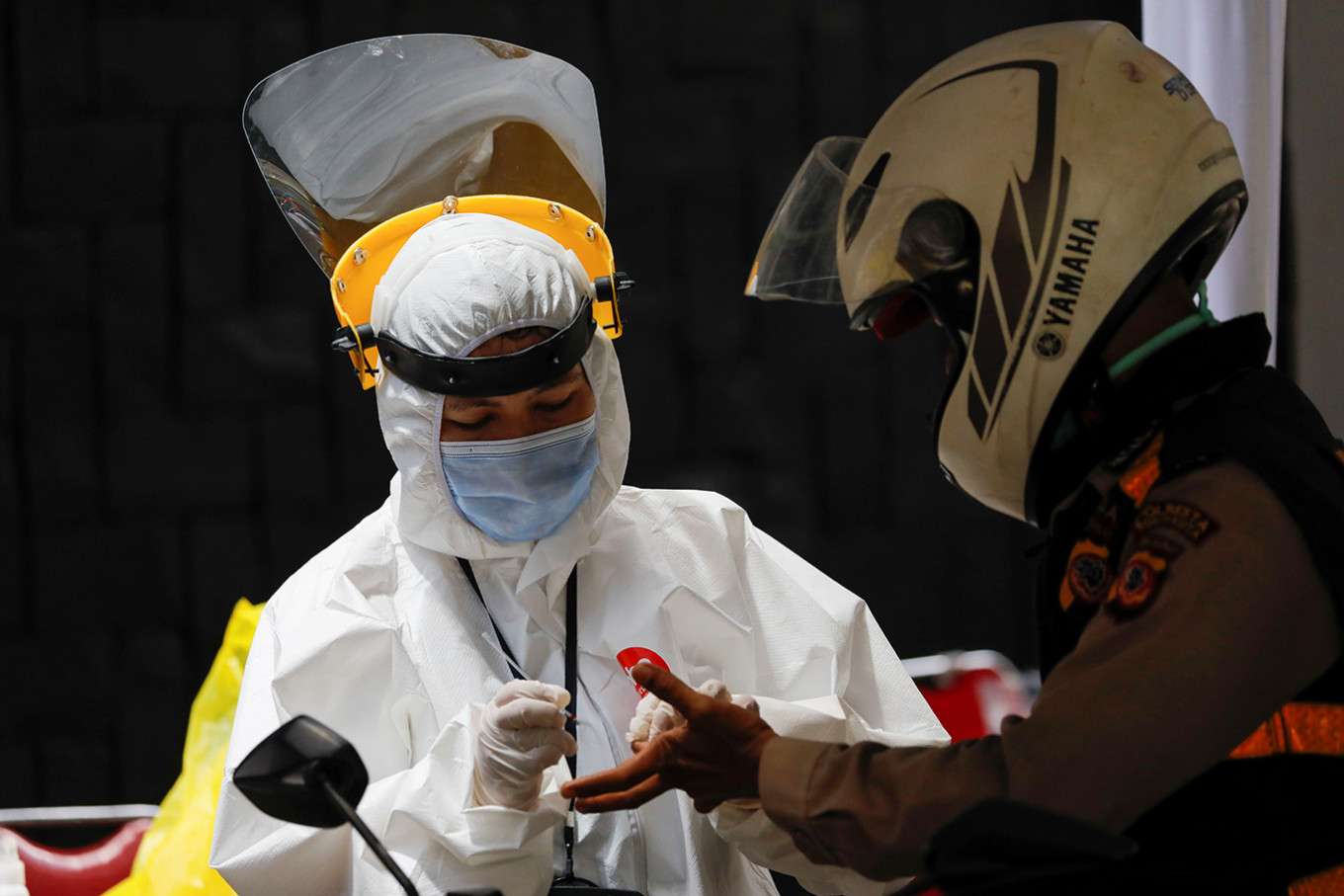Popular Reads
Top Results
Can't find what you're looking for?
View all search resultsPopular Reads
Top Results
Can't find what you're looking for?
View all search resultsLack of coordination, absence of leadership exacerbate COVID-19 crisis in Indonesia: Study
A study by a team from the Gadjah Mada University (UGM) Faculty of Social and Political Science in Yogyakarta has asserted that a lack of coordination in the government has exacerbated the impact of COVID-19 in the country.
Change text size
Gift Premium Articles
to Anyone
A study by a team from the Gadjah Mada University (UGM) Faculty of Social and Political Science in Yogyakarta has asserted that a lack of coordination in the government has exacerbated the impact of COVID-19 in the country.
"The government has shown poor coordination among its institutions both in the central government and on regional levels, causing fragmented responses in dealing with COVID-19. Synergy is a vital part of dealing with the crisis," the team wrote in a policy briefing published on April 1.
The team also pointed out that government officials had regularly given contradictory statements about the outbreak.
"The government never displayed clear policy messages. Mixed messages from government officials became more apparent later on as many gave contradictory statements. This situation leads to an absence of leadership, which is very important in crisis management."
Read also: 'Lockdown would have overwhelmed govt', says COVID-19 task force head
The lack of clear policies, the authors of the study said, had caused misinformation and hoaxes to spread among the public, causing widespread confusion.
"Even some officials from the central government and from regional administrations experienced the confusion."
The study said the government had been slow to take preventative measures in the COVID-19 outbreak, even after the disease had spread to Southeast Asia.
"The government's first mistake in dealing with the COVID-19 pandemic was ignoring the threat of COVID-19. Several government officials seemed confident that COVID-19 was not a threat to Indonesia, even after the disease had spread to Southeast Asia, which showed just how unprepared we were in facing the pandemic threat."
Read also: Indonesia’s strategy to combat COVID-19: What we know so far
As of Tuesday, Indonesia had nearly 3,000 confirmed COVID-19 cases with 221 deaths.
The study suggested that the government continuously adjust its policies based on scientific evidence and new research on the virus.
"The government should also create an integrated channel for COVID-19 response by involving all stakeholders. In addition to creating unified understanding about government policies, this channel could build public trust in COVID-19 mitigation."
The study further suggested that the government identify regional resources and infrastructure.
"Identification of resources, capacity and infrastructure on the regional level is very urgent. If this is done, every region will be prepared if the outbreak spreads to their areas."










